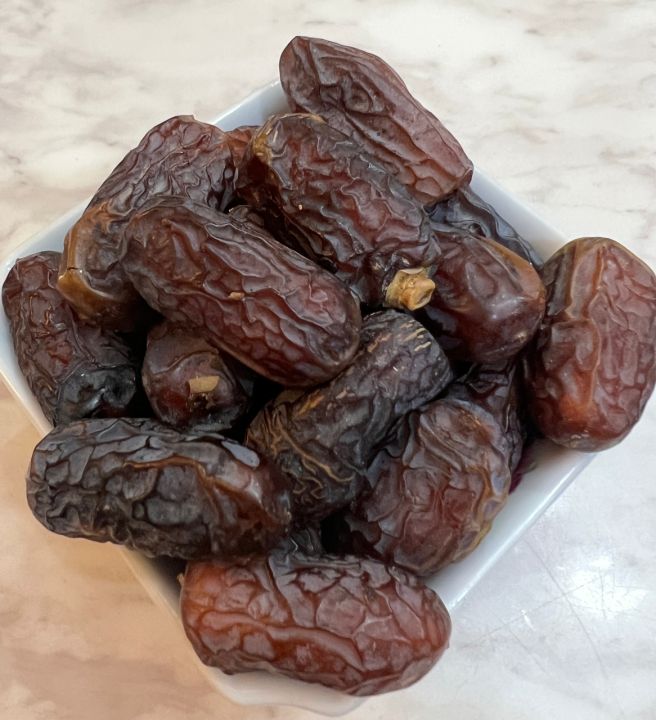
Pembekal Kurma Malaysia: the Challenges Faced by Date Importers
Introduction
As the demand for dates, or kurma, continues to rise in Malaysia, Pembekal Kurma Malaysia plays a vital role in ensuring the availability and quality of this popular fruit. In this blog post, we will explore the challenges faced by date importers and distributors in Malaysia. Understanding these challenges is essential for stakeholders in the dates industry to address potential issues and optimize their operations.
The Role of Date Importers and Distributors
Date importers and distributors form a critical link in the Kurma supply chain, connecting global sources of dates with Malaysian consumers, retailers, and wholesalers. These entities fulfill several key functions:
1. Sourcing Dates
Importers are responsible for sourcing dates from various international suppliers. They establish relationships with producers and exporters in different countries to ensure a consistent supply of high-quality dates. Sourcing involves considering factors such as product quality, variety, price, and shipping logistics.
2. Ensuring Regulatory Compliance
Importers must navigate the complex regulations and requirements related to importing dates into Malaysia. This includes complying with phytosanitary standards, customs procedures, labeling requirements, and documentation. Ensuring compliance can be time-consuming and requires a thorough understanding of import regulations.
3. Quality Control and Assurance
Maintaining the quality and freshness of dates is crucial for importers and distributors. They need to implement robust quality control measures to ensure that the dates meet the desired standards. This includes inspecting shipments upon arrival, conducting laboratory tests, and implementing proper storage and handling practices.
4. Distribution and Logistics
Importers and distributors are responsible for the efficient distribution of dates to retailers, wholesalers, and other customers. This involves managing logistics, coordinating transportation, and optimizing inventory management to minimize product spoilage and maximize shelf life.
Challenges Faced by Date Importers and Distributors
While the Kurma industry in Malaysia presents numerous opportunities, importers and distributors also face several challenges. Let’s explore the main challenges encountered in this sector:
1. Seasonality and Supply Chain Management
Dates are a seasonal fruit, and their availability can fluctuate throughout the year. Importers and distributors must carefully manage their supply chain to ensure a consistent supply of dates to meet market demands. This involves forecasting demand, coordinating with international suppliers, and implementing effective inventory management strategies to avoid stockouts or excess inventory.
2. Quality Control and Shelf Life
Maintaining the quality and freshness of dates is critical for importers and distributors. However, dates have a limited shelf life, and improper handling or storage can lead to spoilage. Ensuring effective quality control measures and implementing proper storage and handling practices can be challenging, especially when dealing with large volumes of dates.
3. Regulatory Compliance
Importing dates into Malaysia involves navigating complex regulatory frameworks. Importers must comply with phytosanitary standards, customs procedures, and labeling requirements. Keeping up with changing regulations, obtaining the necessary permits and certifications, and ensuring proper documentation can be time-consuming and resource-intensive.
4. Price Volatility and Market Competition
The price of dates can be affected by various factors, including global supply and demand dynamics, currency fluctuations, and trade policies. Importers and distributors must carefully monitor market trends and adjust their pricing strategies accordingly. Additionally, the Kurma market in Malaysia is highly competitive, with multiple players vying for market share. Maintaining competitive pricing and differentiating the product offering can be challenging in such a competitive landscape.
5. Logistics and Transportation
Efficient logistics and transportation are crucial for timely delivery of dates to customers. Importers and distributors must navigate the complexities of international shipping, including customs clearance, documentation, and transportation logistics. Delays or disruptions in the supply chain can impact the quality and availability of dates, leading to dissatisfied customers and potential financial losses.
Conclusion
Pembekal Kurma Malaysia plays a vital role in ensuring the availability and quality of dates for consumers, retailers, and wholesalers. However, they face various challenges, including seasonality, quality control, regulatory compliance, price volatility, market competition, and logistics. Overcoming these challenges requires effective supply chain management, robust quality control measures, adherence to regulatory requirements, market intelligence, and efficient logistics operations. By addressing these challenges, importers and distributors can optimize their operations and contribute to the growth and success of the Kurma industry in Malaysia.
Key Highlights:
– Pembekal Kurma Malaysia connect global sources of dates with Malaysian consumers, retailers, and wholesalers.
– They are responsible for sourcing dates, ensuring regulatory compliance, implementing quality control measures, and managing distribution and logistics.
– Challenges faced by date importers and distributors in Malaysia include seasonality and supply chain management, quality control and shelf life, regulatory compliance, price volatility and market competition, and logistics and transportation.
– Seasonality and supply chain management challenges arise due to the fluctuating availability of dates throughout the year, requiring effective supply chain planning and inventory management.
– Quality control and shelf life challenges involve maintaining the freshness and quality of dates, which have a limited shelf life, through proper handling, storage, and quality assurance practices.
– Regulatory compliance challenges include navigating complex import regulations, obtaining permits and certifications, and ensuring compliance with phytosanitary standards and labeling requirements.
– Price volatility and market competition challenges require monitoring market trends, adjusting pricing strategies, and differentiating the product offering to remain competitive in the market.
– Logistics and transportation challenges involve managing international shipping, customs clearance, documentation, and transportation logistics to ensure timely and efficient delivery of dates.
By addressing these challenges, date importers and distributors can optimize their operations, ensure a consistent supply of high-quality dates, and contribute to the growth and success of the Kurma industry in Malaysia.